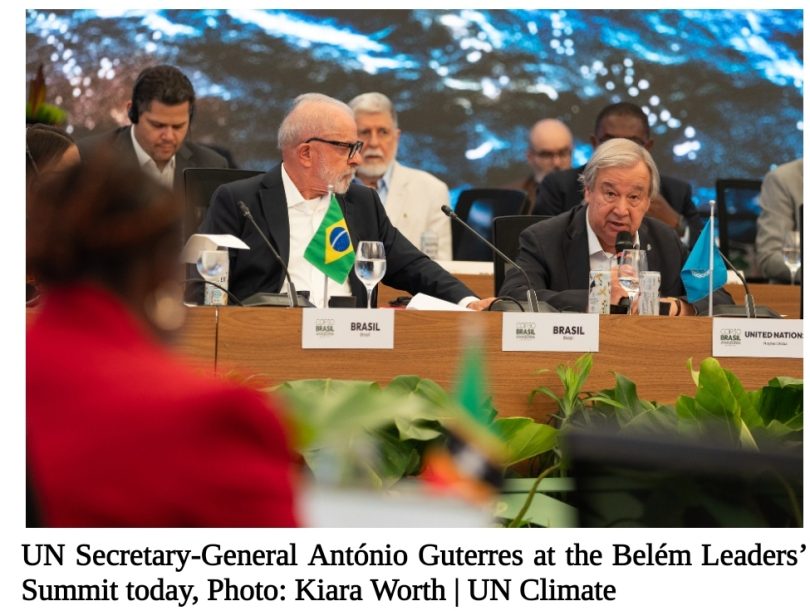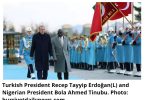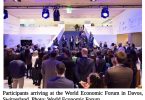The 30th United Nations Climate Change Conference (COP30) is set to convene in Belém, Brazil, from November 10-21, 2025.
Gathering negotiators from nearly 200 countries, along with tens of thousands of leaders, scientists, activists, and business innovators, this summit marks a critical juncture ten years after the landmark Paris Agreement. Hosted at the mouth of the Amazon River, the conference is being framed by the Brazilian Presidency as the “COP of Implementation,” moving beyond pledges to concrete, real-world action.
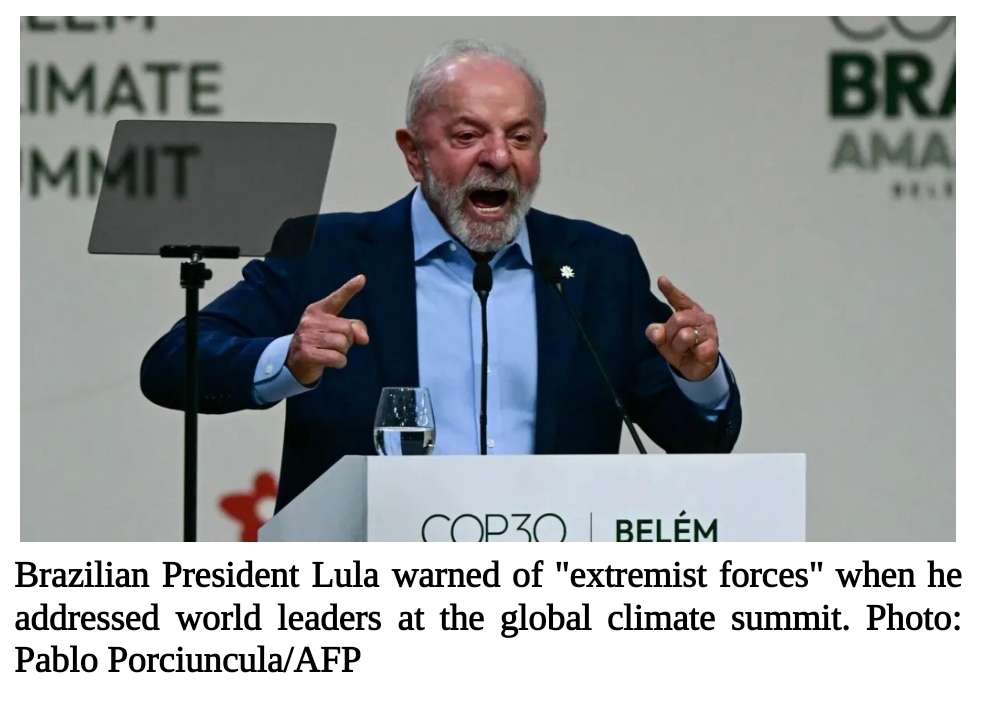
The central objective is to ignite a “decade of acceleration and delivery” to keep the 1.5°C warming limit within reach. The agenda is packed, but will be defined by three critical, high-stakes pillars: finalizing a new global finance goal, launching a new era of forest protection, and securing a new generation of ambitious national climate plans (NDCs).
The Preparatory Leaders’ Summit
To build momentum for the two weeks of negotiations, the UN convened the World Leaders’ Climate Action Summit in Belém just days before the official kickoff. The summit’s opening was defined by a message of profound economic optimism, with leaders declaring that the financial and technological tides have turned.
UN Secretary-General António Guterres stated unequivocally that the world is in the midst of a “renewables revolution.” “The fossil fuel age is ending,” he said. “The clean energy future is rising.”
This assessment was not based on hope, but on hard data from 2024. In a striking alignment of messaging, both Guterres and UN Climate Change Executive Secretary Simon Stiell pointed to the economic facts:
- A “Booming” Market: Investors poured $2 trillion into clean energy last year, a figure Mr. Guterres noted was $800 billion more than what was invested in fossil fuels.
- Market Dominance: An astonishing 90% of all new power capacity added worldwide in 2024 came from renewables.
- Cost and Jobs: Solar and wind are now the cheapest sources of new electricity “almost everywhere” and create three times more jobs than fossil fuels.
“Clean energy is winning on price, performance, and potential,” Guterres argued, noting it is reshaping geopolitics by offering energy security and price stability. Simon Stiell echoed this, highlighting that the global climate response, while incomplete, has “already changed the trajectory of global warming.”
The challenge, as both leaders stressed, is no longer about technology; it’s about speed and fairness. “Climate plans and climate finance,” Mr. Stiell said, “are the spark that can accelerate action, driving green growth and resilience for every nation.”
A Fractured Political Landscape
This clear-eyed economic case is poised to run headlong into a fractured political landscape as COP30 will open with notable absences from the leaders of several of the world’s largest economies, including the United States, China, India, and Russia.
The absence of US President Donald Trump, in particular, is sure to cast a long shadow over the proceedings. Having recently called climate change “the greatest con job ever perpetrated on the world” and rejected the “globalist concept” of climate action, his stance will certainly be a central point of discussion and frustration.
Brazil’s President Luiz Inácio Lula da Silva, the host, has warned of “extremist forces that fabricate fake news.” The leaders of Colombia and Chile have been more direct, calling the US president a “liar” for rejecting established science.
This diplomatic rift is perhaps best summarized by UK Prime Minister Sir Keir Starmer. In a moment of stark candor, he acknowledged the waning political support for the cause. Climate change, he noted, had been a unity issue both internationally and in the UK, “but today sadly that consensus is gone.”
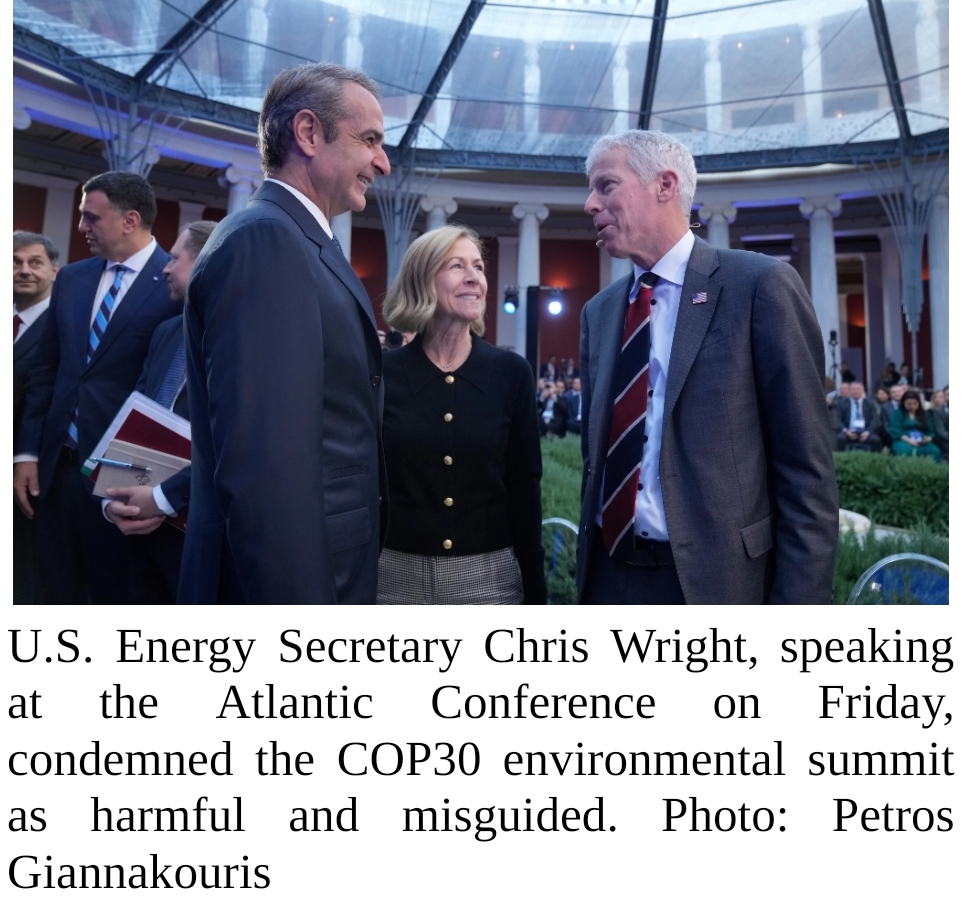
This fractured consensus makes the primary goal of the summit getting countries to submit more ambitious emissions-cutting plans (NDCs) extraordinarily difficult.
The key agenda item at COP30 is the “Baku to Belém Roadmap,” a plan to scale up climate finance from $300 billion to $1.3 trillion a year by 2035. As Simon Stiell described it, this is “shared interest, not charity, an investment in stability and prosperity.”
Yet, a dramatic incident on the eve of the talks exposed the deep chasm between rhetoric and reality.
Brazil, as the host nation, had championed a flagship $125 billion “Tropical Forests Forever Facility” to protect the world’s great rainforests. The plan relied on raising $25 billion from public sources in developed nations. The UK, which had been heavily involved in the fund’s design, was seen as a key participant.
In a move that stunned delegates, the UK opted out of the fund at the last minute. The decision was described as a “blow” to the Brazilian hosts, with sources reporting the government in Brasília was “furious.”
The Key Agenda Items for COP30
Beyond the high-level drama, negotiators from nearly 200 countries will now sequester themselves in detailed technical sessions. The conference schedule is a dense alphabet soup of bodies—including the thirtieth session of the Conference of the Parties (COP 30), the seventh session of the Paris Agreement (CMA 7), and the sixty-third sessions of the subsidiary bodies for scientific advice (SBSTA 63) and implementation (SBI 63).
Their mandate will focus on several key areas:
- Finance: This is the undisputed main event. Beyond the $1.3 trillion goal, talks will focus on delivering long-overdue funds for adaptation and, critically, the Loss and Damage Fund.
- Mitigation and NDCs: A majority of countries have failed to submit new, more ambitious 2030 climate plans as required. A key goal for COP30 is to address this issue and achieve concrete, real-world outcomes.
- Just Transition: High-level segments will focus on protecting workers and communities during the energy transition, a key priority outlined by Guterres, the UN Secretary-General.
- New Demands: For the first time, leaders are being compelled to account for new, massive energy demands, specifically from Artificial Intelligence, and ensure that growth is met with clean power, rather than new fossil fuels.
- Transparency: Nations must make progress on the new “biennial transparency reports” (BTRs), the mechanism designed to hold countries accountable to their pledges.
As negotiators from nearly 200 countries settle in for two weeks of technical work in Belém, the 30th UN Climate Change Conference is defined by a stark dualism. The “renewables revolution” has provided the technical and economic tools to win the climate fight, a fact trumpeted by UN leadership. Yet, this optimism is fragile, confronting a reality of fractured political will, high-profile absences, and a deepening trust deficit over finance.
The symbolic power of meeting in the Amazon is clear, but the outcome is not. The challenge for COP30 is whether the “Baku to Belém Roadmap” for finance and the urgent push for new, ambitious NDCs can build a bridge across the chasm separating what is economically possible from what is politically palatable. The next two weeks will determine if the world can truly begin the “decade of acceleration” it so desperately needs.
Written by Olvier Noudjalbaye Dedingar, USA/UN Correspondent.


